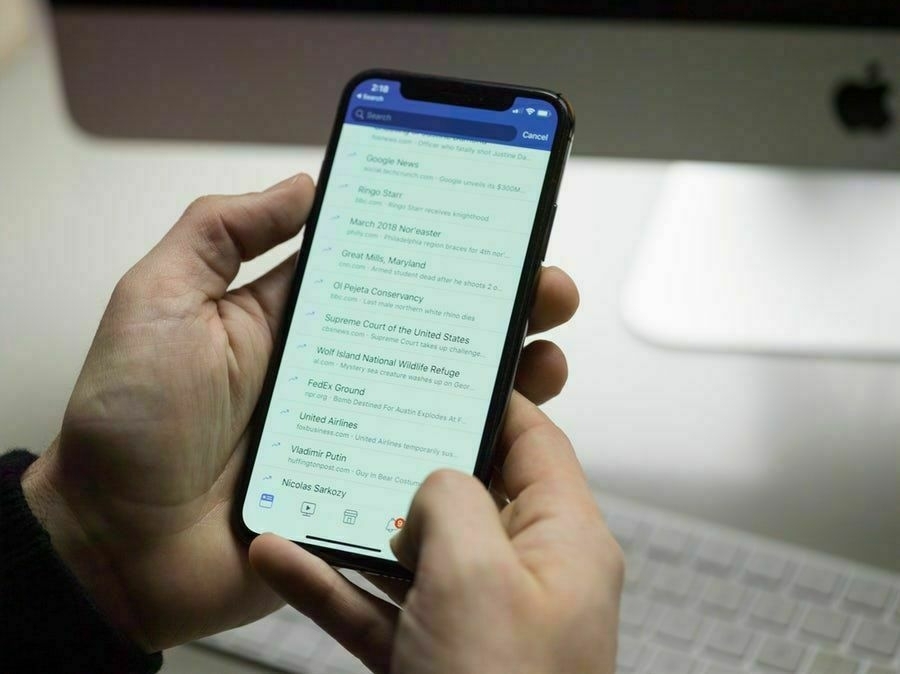👋 Hola, it’s great to have you here.
Mark Zuckerberg probably thinks it was good PR to say sorry so many times. For Millenials however, we’re so over Facebook. So much so, that Facebook now advertises to us in Messenger and on Instagram, by default.
While our grandparents have a grand old time on Facebook in their discovery of the internet, dating or the blockchain won’t likely lure us back. Millennials have never been so aware of how social media time takes away from important real-life interactions.
When you have the most talented people working for an organization like Facebook and your task is to steal features from other platforms and create tools that make your platform addictive and make people dependent, you know real innovation is probably not taking place in that ecosystem.
More people are now talking about Facebook as if it’s an invasive species that’s overrun our once-polite society. At best, silly games like Candy Crush and cat videos have eaten hours of our day — time we could have spent with friends and family. Imagine a world where we can put those hours to something, fun, productive, for the good or just simple for self-caring and self-awareness.
Deep down you always knew it. On the edge of your perception, you always heard the people who talked about the erosion of privacy, that there was no such thing as free cheese, that if you don’t pay — then you’re the product. Now you know that it’s true. Cambridge Analytica has sucked the data so kindly and diligently collected by Facebook and used that data to influence the US elections and Brexit (and who knows what else).
Some say, “I don’t want to stop using Facebook, I want them to change.” And that is wrong. Keeping up with your friends is good. But Facebook’s business and data model is fundamentally flawed. For you, your data is who you are. For Facebook, your data is their money. Taking it from you is their entire business, everything else is fancy decoration.
For the ordinary user there are more clear benefits of leaving the platform than staying, so why don’t I mention a few gains?
- Improved privacy
- Less exposure to advertisements and fewer data harvested on own activity
- Less exposure to harmful undesirable activities
- Fewer comparisons with other people
- Less insight on “fake friends” who wish you happy birthday, and nothing else
- More resilience to mobile addiction and notification checking behavior
- Less interaction with feeds and stories ad nauseam
- More time for the real-world, and building and nurturing real relationships
- Less exposure to political unrest, weaponized algorithms, misinformation, and echo-bubble reinforced opinions
- More time for yourself, to be at peace
- Less exposure to the news that’s not enlightening, helpful or inspirational (like, at all)

Let’s not feel guilty about leaving a social platform that captured us when we were more vulnerable. When we were young.
If you haven’t said this to yourself before, It’s OK to leave Facebook.
There, I said it for you.
- Less creepy fake accounts and people you don’t know trying to “friend” you
- Less News pivots from the dead “Trending” to news in micro video from “reputable” publishers
- Fewer interruptions
- Less voyeurism without social contact, which I think is extremely unhealthy and chronic now
- Less evidence of how people drift apart as they get older, which is both normal and kind of sad
- Stopping to support an advertising Duopoly that is out of control
- Being free from so much spam
- Being disconnected from the artificial sense that your digital cohort is a social safety net
- Avoiding face-to-face meeting less by relying on social media for “social snacks” that isn’t fulfilling, to begin with
Ok Javi, so now what?
Are you a Cambridge Analytica victim? You can find out by visiting this page on Facebook while you’re signed in. Let the irony of that sink in. Still, it’s the only way to be certain. Now you know.
Take your data back. You can download it from Facebook and keep a copy. Here’s how to do it. Look at all that data. That’s why everyone’s so upset.
Deactivate — or delete? You have two choices. You can deactivate your Facebook account, which is like putting the account on “pause.” People can’t see your timeline or search for you when you’re deactivated. Or you can go all-in on the #DeleteFacebook movement. This page explains the differences. (Again, um, it’s on Facebook.)
Consider more detoxing. There, did that feel good? Now you might want to do a more thorough digital detox, using a site like Account Killer or Deseat.me. Because this Cambridge Analytica thing — it’s just the beginning.
Build a better internet. As internet users, we have the job of making the digital world a better place, using services that are not controlled by corporations will help us to fight back and gain our freedom of expression, privacy and rights back. You might want to check services like Mastodon, Write.as, Signal to help and build a better web that is decentralized, ethical and privacy-conscious; but this might a discussion for the next time that we see each other.
Give it a shot. Pick up your phone right now and delete Facebook. Why not? You might be surprised how liberated you feel. Shrug off the weight of digital big brother and the web corrupted by profit and Silicon Valley greed.
Prove to yourself that you can do it.
Social media doesn’t decide how you use it.
Social media doesn’t share your priorities.
Social media doesn’t care about you. Only you can do that.